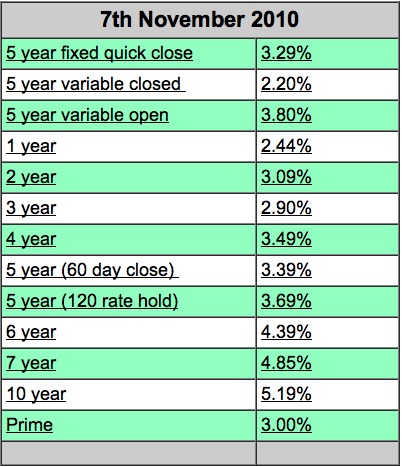A recent report from Canada’s National Housing Agency, the CMHC, opens a very interesting discussion on why our Vancouver housing market is so strong and why we expect it to continue on.
Statistically-backed reasons are given as to why our economy is improving – Â currently up 3.3% this year and expected to reach a further 2.8% next year.
As well as job growth, Vancouver is still very much attracting immigration with 16000-18000 new households anticipated – all of these will naturally need homes. Of course they will be spread around all the area municipalities, but could be visualized as approximately 100 new downtown highrises with 200 new homes each.
In addition, home buying in Vancouver (at whatever the price) is still relatively affordable because the mortgage rates are anticipated to remain in the 2.7-3.7 % range in 2011 (1 year posted rate.)These are historically low mortgage rates that haven’t been seen since the 1960s!
The main points this article brings up are
• MLS®1 sales will remain stable until mid-2011, due to steady population growth and favourable mortgage rates.
• Improving economic conditions will further support job growth resulting in a moderate increase in new and resale housing sales.
• Home price appreciation will slow as the recently established balance between sales and listings continues in 2011.
• New home construction will increase modestly in 2011, approaching the ten-year average level as demand for new housing strengthens.
We include this information as education for our offshore and out of province clients who continually ask us what is going on in the Vancouver housing market, and why it is flourishing when other areas are flat.
Economy
As the local economy continues to add jobs, demand for both new and resale housing will remain firm. The Metro Vancouver economy is expected to grow at a pace slightly above the provincial economy given the more diversified local economy. CMHC is forecasting that the B.C. economy will expand by 3.3 per cent in 2010, and by a further 2.8 per cent next year.
For full details, or to discuss these issues further, please contact Nic Meyer – nic@downtownsuites.com
Source: CMHC, Housing Market Outlook, Vancouver and Abbotsford CMAs, Fall 2010






